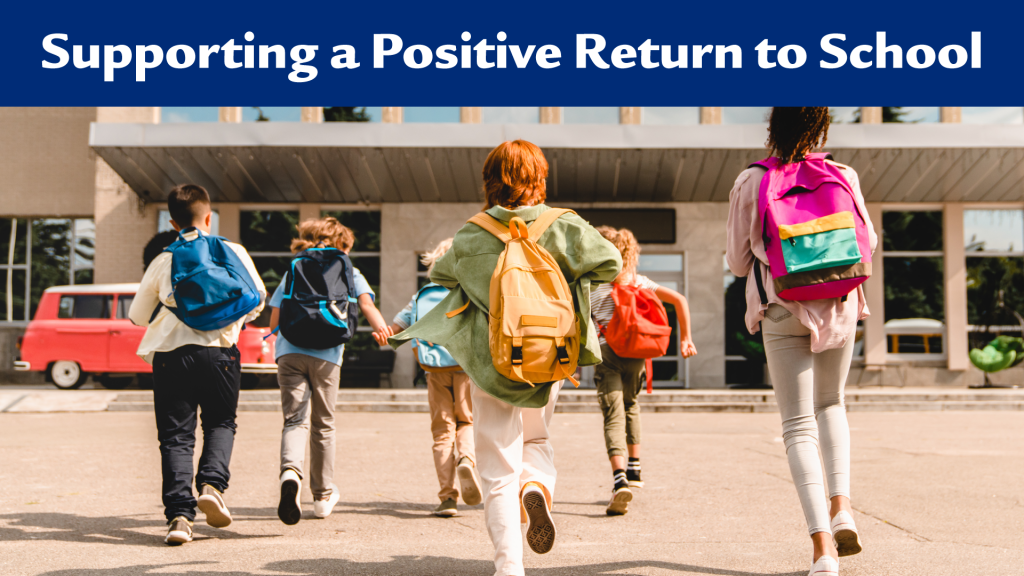
Supporting a Positive Return to School
 The past two school years have been anything but usual!
The past two school years have been anything but usual!
While many students and families are eager to return to a “more normal” school year, some will be worried.
Here are some tips that can help your child/teen have a positive start to the school year:
- Be kind to yourself – The last two and a half years have been challenging. As parents/caregivers, you’ve likely navigated a lot of stressful and draining situations. Take some time to focus on your own mental health and well-being – a powerful tool to support your children. Recognize that you’re doing the best you can.
- Watch for signs of anxiety – Your child may tell you that they feel fearful or overwhelmed. Or you might notice things like their frequent headaches, trouble sleeping, irritability or emotional outbursts. Your child might seem withdrawn, or overly tired or restless. Seeing these behaviours through the lens of anxiety can be helpful in providing early and useful support.
- Talk with your child/teen – Talk about what the return to school might be like for your child and what they can expect. Children may feel nervous about returning to school for any number of reasons. It is important to allow space for them to express their concerns. Help them remember the parts of school that they enjoy and look forward to the most. Check in with your child/teen regularly, as these feelings may shift and change.
- Calm anxious and worried thoughts – When your child seems anxious or worried, support these feelings with validation and empathy. Suggest stress relief techniques like a power nap, mindfulness practices, visualizing positive places or experiences, deep breathing, listening to music or getting organized. Address concrete worries by walking the route to school together or supporting renewed connections with friends.
- Pay attention to special transitions – If your child/teen is returning to in-person learning this year, starting high school or finishing their high school journey, they may feel additional worries. Validate their feelings and find the positive side of their new experiences. Reassure them that there will be caring adults in their school community to help them navigate these changes.
- Work towards familiar routines – As summer ends, it may help to gradually move back to a schedule more like the one you use during the school year. This may mean going to bed a bit earlier, getting up earlier or eating at more regular times.
Remember as parents/caregivers you know your child best!
Additional Resources and Supports:
- Check the HWDSB website (on.ca) for up-to-date information on what to expect.
- Try some everyday mental health activities
- Visit some helpful websites:
Updated on Thursday, August 24, 2023.

